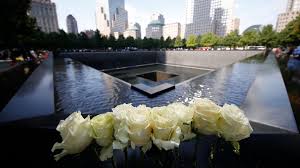Remembering 9/11: The Day that Changed the World Forever
A day that reshaped history and the world’s sense of security forever.


On a clear, sunny morning on September 11, 2001, the world witnessed a tragedy that left an indelible mark on history. This day became one of the darkest chapters in modern times when a coordinated terrorist attack struck at the heart of the United States. The attacks resulted in the death of thousands, a global war on terror, and a profound shift in how nations approached security and international relations. As we reflect on the events of 9/11, we not only remember the lives lost but also draw lessons on the need for global unity in combating terrorism and fostering peace.
What Happened on 9/11?
At around 8:46 a.m. Eastern Time, American Airlines Flight 11, hijacked by terrorists, crashed into the North Tower of the World Trade Center in New York City. This marked the beginning of a series of four coordinated terrorist attacks carried out by the Islamist extremist group al-Qaeda. Just 17 minutes later, at 9:03 a.m., United Airlines Flight 175 struck the South Tower. Both towers, iconic symbols of American financial power, were engulfed in flames and smoke, eventually collapsing in a horrifying spectacle broadcast live on television screens across the globe.
At 9:37 a.m., a third plane, American Airlines Flight 77, crashed into the Pentagon in Washington, D.C., the headquarters of the U.S. Department of Defense. A fourth plane, United Airlines Flight 93, was also hijacked but never reached its intended target. Passengers onboard fought back against the terrorists, and the plane crashed into a field in Shanksville, Pennsylvania, at 10:03 a.m., preventing even greater devastation.
The Aftermath: Death Toll and Destruction
The human cost of the 9/11 attacks was staggering. A total of 2,977 people were killed, including 246 passengers and crew members aboard the four hijacked planes, 2,606 people in and around the World Trade Center, and 125 at the Pentagon. This number also included hundreds of first responders—firefighters, police officers, and paramedics—who rushed into the burning towers, sacrificing their lives in an attempt to save others.
Beyond the immediate loss of life, the physical destruction was catastrophic. The World Trade Center, an emblem of global commerce, was reduced to rubble, leaving lower Manhattan in ruins. The Pentagon, though still standing, suffered significant damage. The United States faced not only a tragic loss of human life but also a psychological blow, as the attacks shook the nation's sense of security and invulnerability.
Who Was Behind the Attacks?
The 9/11 attacks were orchestrated by al-Qaeda, a radical Islamist terrorist group led by Osama bin Laden. The plot was meticulously planned over several years, involving the hijacking of commercial airplanes and turning them into weapons of mass destruction. Nineteen terrorists, mostly from Saudi Arabia, carried out the attacks, having trained in the United States to pilot the planes.
Al-Qaeda's motivation for the attacks was deeply rooted in a distorted interpretation of Islamic teachings and a desire to strike against what they perceived as Western imperialism and U.S. foreign policy in the Middle East. Osama bin Laden cited U.S. military presence in Saudi Arabia, U.S. support for Israel, and economic sanctions against Iraq as key grievances. However, the brutal, indiscriminate violence of the attacks shocked and horrified the world, garnering widespread condemnation.
The Global Response and the War on Terror
In response to the 9/11 attacks, the United States, under President George W. Bush, declared a "War on Terror." The U.S. invaded Afghanistan in October 2001, toppling the Taliban regime, which had harbored bin Laden and al-Qaeda. This military campaign marked the beginning of a global effort to combat terrorism, involving intelligence-sharing, counterterrorism operations, and new security measures worldwide.
The ripple effects of 9/11 extended far beyond military action. Airports around the world introduced stringent security checks, governments passed anti-terrorism laws, and intelligence agencies bolstered their efforts to prevent future attacks. The Patriot Act in the United States, though controversial, was passed to enhance the government's ability to track and intercept terrorist activities. The United Nations and other international organizations strengthened their cooperation in combating terrorism, recognizing the need for a united front.
Why the World Must Learn from 9/11
The attacks of September 11, 2001, remain a stark reminder of the destructive potential of terrorism. They revealed the vulnerabilities of even the most powerful nations and highlighted the importance of global cooperation in addressing security threats. Beyond the immediate response, the world must learn several crucial lessons from this tragedy.
1. Terrorism Knows No Borders: The 9/11 attacks demonstrated that terrorism is a global issue that transcends national boundaries. Nations must collaborate to share intelligence, address the root causes of extremism, and work together to prevent future attacks.
2. The Importance of Resilience: The American people's response to 9/11, marked by unity and resilience, showcased the human spirit's capacity to rebuild after tragedy. From the heroic actions of first responders to the strength of families who lost loved ones, the world witnessed acts of courage and compassion.
3. Addressing Root Causes: While military action is necessary to combat terrorism, long-term solutions must address the underlying issues that fuel extremism, such as poverty, political instability, and lack of education. Engaging in dialogue, promoting understanding between cultures, and fostering economic development are essential to creating a more peaceful world.
4. Honoring the Victims: Lastly, the world must never forget the victims of 9/11. Their memory serves as a powerful reminder of the need for vigilance and compassion in the face of hatred.
Conclusion
The events of September 11, 2001, were a defining moment in world history. As we remember the lives lost, we must also commit to building a safer, more peaceful future. The lessons of 9/11 are clear: global cooperation, resilience, and understanding are the keys to preventing such tragedies from ever happening again. Today, the world stands together, stronger and more united, because of the lessons learned from that fateful day.
